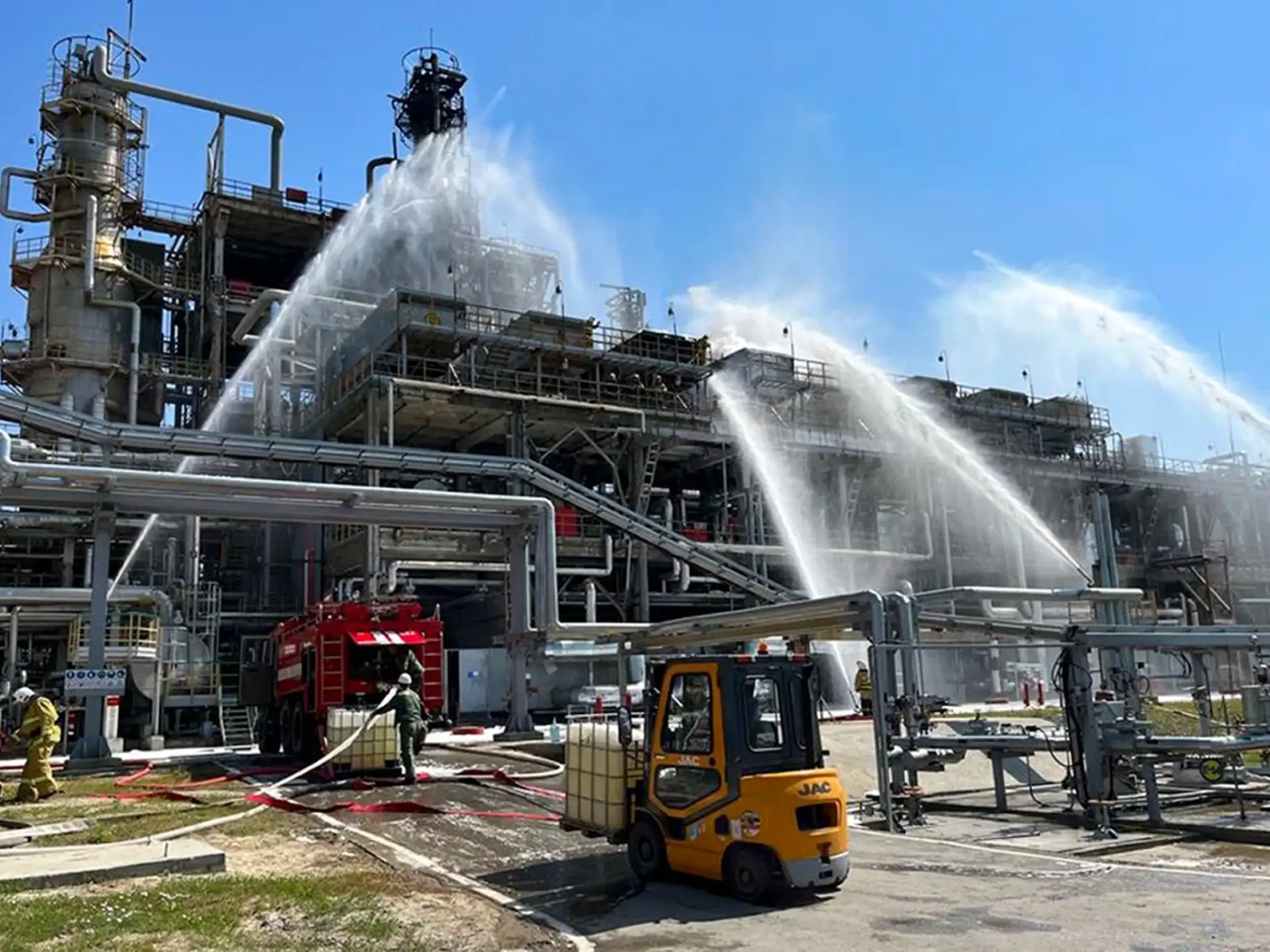Ukrainian drones executed a significant attack on the Kirishi oil refinery in Russia’s Leningrad region, operated by Surgutneftegas, which processes about 355,000 barrels of crude oil daily. The operation caused substantial fires and operational disruptions at one of Russia’s largest energy facilities. Despite three drones being intercepted, debris from the downed drones ignited the blaze. Fortunately, no casualties were reported, and the fire was quickly contained.
This strike is part of a broader Ukrainian strategy aimed at disrupting Russian energy supplies to weaken Moscow’s military capabilities and economic stability. The successful penetration of Ukrainian drones deep into Russian territory—approximately 1,400 kilometers from Ukraine’s border—demonstrates not only the increasing range and precision of their drone operations but also the evolving nature of modern warfare, where unmanned aerial vehicles (UAVs) play a crucial role.
The incident has prompted concerns regarding the effectiveness of Russia’s air defense systems and highlights the vulnerability of its critical energy infrastructure to such long-range attacks. While Russian officials have downplayed the incident’s severity, citing the swift response to contain the fire, it underscores the ongoing escalation in hostilities and the targeting of strategic assets by both nations.
As the conflict continues, Ukraine is expected to sustain its drone operations against Russian oil refineries, potentially leading to further disruptions in Russia’s energy production and exports. The international community remains watchful, assessing the implications for global energy markets and geopolitical stability as tensions rise between the two nations.












I cant believe the audacity of those Ukrainian drones! Do you think this will escalate tensions even further?
Was it a strategic move or an act of aggression? Lets discuss the implications of Ukrainian drones targeting Russian oil facilities.
I cant believe Ukraines bold move! Do you think this will escalate the conflict or lead to a resolution? Lets discuss!
I cant believe the audacity of those Ukrainian drones! Do you think this will escalate the conflict even further?